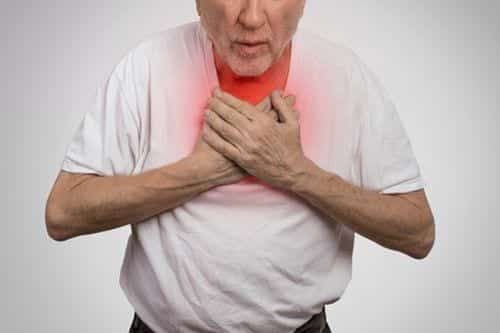
This post discusses Social Security Disability Benefits for Pulmonary Illness. If you are unable to work due to breathing issues, read on for how Social Security will evaluate your claim for disability.
It should be noted that continued smoking greatly diminishes your chances of being approved for disability benefits for a breathing disorder. Doctors usually advise patients to stop smoking as the first line of treatment for pulmonary illnesses. The most common pulmonary issues I see in my practice are COPD (Chronic Obstructive Pulmonary Disease), asthma and sarcoidosis.
COPD (emphysema and chronic bronchitis) blocks airflow and makes breathing difficult. Common symptoms are shortness of breath, wheezing, chest tightness and chronic cough (Found here). Exacerbation of your symptoms can last for days or months. COPD is usually diagnosed after a spirometry or chest x-ray. Treatment for COPD usually includes bronchodilators, inhaled steroids or oxygen therapy.
The Social Security Administration evaluates COPD under 3.02 Chronic Pulmonary Insufficiency. This listing relies on the results of pulmonary function testing, specifically your FEV1 and FVC. If you know the results of your studies, you can compare them with the chart to see if you meet this listing. Most people are unable to work because of their COPD, but still do not meet this listing.
Asthma is very common in children, but adults can have it too (Found here). The Social Security Administration evaluates asthma under 3.03 Asthma. The first part of this listing actually refers the user to 3.02, which is discussed above. Part B discusses asthma attacks: "occurring at least once every 2 months or at least six times a year. Each in-patient hospitalization for longer than 24 hours for control of asthma counts as two attacks, and an evaluation period of at least 12 consecutive months must be used to determine the frequency of attacks."
"Sarcoidosis is a disease caused by small areas of inflammation. It can affect any part of the body but is most common in the lungs—called pulmonary sarcoidosis. In pulmonary sarcoidosis, small patches of inflamed cells can appear on the lungs' small air sacs (alveoli), breathing tubes (bronchioles) or lymph nodes. The lungs can become stiff and may not be able to hold as much air as healthy lungs. In serious cases, sarcoidosis can cause scar tissue in the lungs, which can affect the lungs' ability to move oxygen into the bloodstream." Via the American Lung Association. The Social Security Administration also evaluates sarcoidosis under Listing 3.02 (discussed above).
Social Security Disability Benefits for Pulmonary Illness may be difficult to obtain if you continue to smoke. If you have stopped smoking and are following your doctor's advice but are still unable to work because of your breathing file a claim for disability today. Call the Bishop Law Firm today for a free case evaluation. We want to help!
Resources:
- https://www.disabilitylawfirmnc.com/social-security-disability/?swcfpc=1#Types_of_Social_Security_Disability_Benefits
- http://www.mayoclinic.org/diseases-conditions/copd/basics/symptoms/con-20032017
- https://www.webmd.com/lung/types-of-lung-function-tests
- http://www.ssa.gov/disability/professionals/bluebook/3.00-Respiratory-Adult.htm#3_02
- https://www.cdc.gov/asthma/index.html
- http://www.ssa.gov/disability/professionals/bluebook/3.00-Respiratory-Adult.htm#3_03
- http://www.lung.org/lung-disease/sarcoidosis/
- https://www.disabilitylawfirmnc.com/how-do-i-apply-for-social-security-disability/

